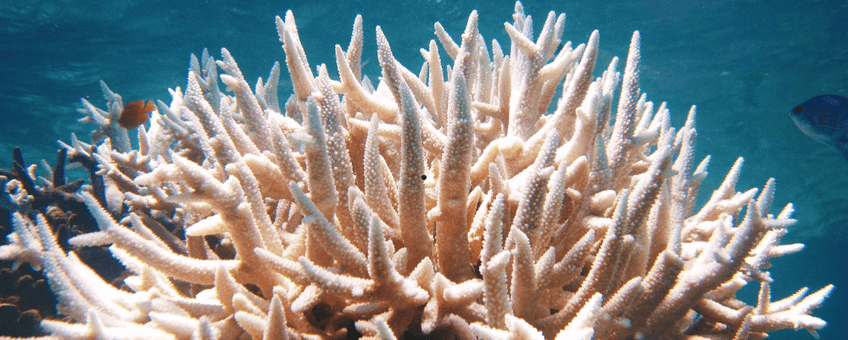
New hope for Caribbean corals: Meet the heat-resistant recruits
Dutch Caribbean Nature Alliance (DCNA)This study was conducted by SECORE International, with scientists from CARMABI, Reef Renewal Foundation Bonaire, University of Amsterdam and other Caribbean organizations.
So, what is coral bleaching? Corals rely on tiny algae (think of them as coral roommates) to provide food, color, and energy. Under heat stress, corals evict these algae, leaving them pale and weak. Without these algae, corals can’t get the nutrients they need and if temperatures stay high for too long, many die. Since coral reefs are hotspots for marine biodiversity, supporting countless fish species and protecting coastlines, their survival is crucial for both ocean health and coastal communities.

Assisted coral recruits
What makes these new recruits so tough? Unlike traditional coral restoration methods that involve taking fragments of adult corals (essentially making coral clones), assisted sexual propagation mixes genetic material to create coral offspring with greater adaptability. The study, conducted across the Caribbean in hotspots like Bonaire and Curacao during the historic 2023 heatwave, found that these 'assisted coral recruits' resisted bleaching much better than their wild relatives. In fact, juvenile corals raised from crossbreeding showed only a ten percent bleaching rate, compared to a staggering sixty to one hundred percent in adult wild corals.
The resilience of the coral recruits in this study is likely due to their young age rather than genetics alone, though increased genetic diversity from breeding may support adaptation over time. Natural recruits of the six species being restored are rare or absent on reefs, making restoration efforts crucial to replenishing this resilient but largely missing component of Caribbean coral populations.
Climate change and coral bleaching
The 2023 bleaching crisis is just one sign of a warming ocean, largely driven by climate change. Higher ocean temperatures, longer heatwaves, and unpredictable weather are becoming the new normal. This year, we are already seeing record high water temperatures earlier than expected, leaving many coral experts worried about the fate of local corals. Coupled with an increase in diseases (like stony coral tissue loss disease) these corals are having to fight harder than ever. We’ve already heard anecdotal evidence that heat stress is having a real impact, including minimal (to no) coral spawning for several critical species.
Beyond restoration
Protecting coral reefs must go beyond restoration alone. Efforts to safeguard reefs need to include addressing the root causes of coral decline and implementing measures that tackle other environmental pressures. For instance, controlling coastal runoff reduces harmful sediment and nutrient loads that can smother reefs, while restoring mangroves and seagrass beds provides essential nursery habitats for marine species and natural filtration of pollutants. Establishing Marine Protected Areas (MPAs) can limit overfishing, preserving fish populations that are vital for maintaining reef balance. Additionally, improving wastewater management, reducing greenhouse gas emissions, and implementing sustainable tourism practices all contribute to the resilience of coral ecosystems. These broader actions combined with modern restoration techniques, such as assisted fertilization, will create more resilient reefs where future generations of coral recruits might stand a fighting chance.
DCNA
The Dutch Caribbean Nature Alliance (DCNA) supports (science) communication and outreach in the Dutch Caribbean region by making nature related scientific information more widely available through, amongst others, the Dutch Caribbean Biodiversity Database, DCNA’s news platform BioNews, and through the press. This article is about a project which is not a DCNA project. No rights can be derived from the content. DCNA is not liable for the content and the in(direct) impacts resulting from publishing this article.
More information
- Read the full article.
Text: Dutch Caribbean Nature Alliance (DCNA)
Photo's: Iza Md Repin (leadfoto: bleached coral); Brian Lasenby
